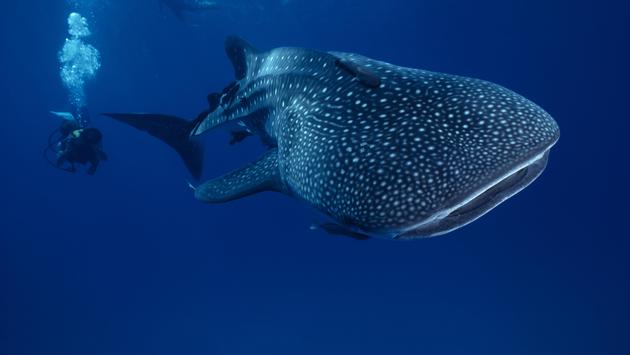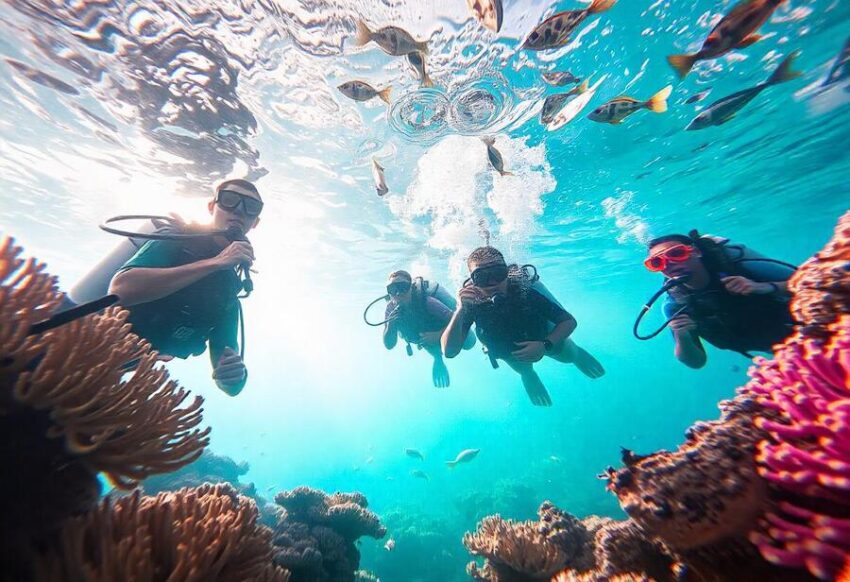- by foxnews
- 18 Nov 2024
Majestic Wildlife Sanctuaries to Visit in Mexico
Nature lovers and wildlife enthusiasts won't be disappointed with what they can find throughout Mexico.
- by travelpulse
- 20 Jan 2023
- in travel

Mexico has vast natural reserves where various species of fauna are protected, ranging from the Great White Shark to flamingos and sea turtles released to the sea shortly after hatchlings.
These are four ecotourism destinations where travelers can enjoy memorable experiences in the habitat of incredible species of flora and fauna.
This volcanic island, located in the Pacific, 150 miles off the west coast of the Baja California Peninsula, is a paradise for great white shark lovers, who can book tours to have close encounters with these beautiful animals within deep dive cages.
Isla Guadalupe is home to one of the biggest great white shark sanctuaries, along with South Africa and Australia. It has several tour operators offering cage diving experiences in sessions of approximately one hour to admire specimens 16 feet long, on average, that surround the cages. The best season for encounters with great white sharks is between July and November when the waters are more transparent and allow an average visibility of 130 feet.
This fantastic site, located on the Baja California Peninsula, is a rich sanctuary of gray and blue whales that come to breed. The Biosphere Reserve El Vizcaino, a UNESCO-protected area, includes the Ojo de Liebre Lagoon and San Ignacio Lagoon, sites considered the most important for reproducing the North Pacific Gray Whale.
In addition, other species, such as Bottlenose Dolphin, California Sea Lion, Harbor Seal, and sea turtles, live in the lagoons, as well as many migratory bird species.
The Vizcaino also houses pelicans, ducks, golden eagles, peregrine falcons, American lions, and bighorn sheep, among other wild animals. The Reserve is home to 308 terrestrial and marine vertebrates, not counting fish. Seventeen terrestrial species are threatened in El Vizcaino Reserve; four are endangered, six are under special protection, and one is rare. Only the kangaroo rat and the stone squirrel are considered endemic species within the protected area.
A few minutes from Nuevo Vallarta is the Sea Turtles sanctuary. August and November are filled with these species that come to nest, so the Mexican government has arranged Baby Turtles Sea Release programs with specialized staff that supervises the hatchings and release of sea turtles.
During the summer and fall months, people can visit the Green Coast Ecological Group, a green turtle nursery in the San Francisco area where tourists can also release newborn turtles on the beach. Between June and December, the golfing and hawksbill turtles arrive at Las Tortugas Beach. Volunteers and government officials collect the eggs to protect them and incubate them to free hundreds of baby turtles.
This paradise of the Mexican Caribbean, located north of the Yucatan Peninsula, has a significant amount of flora and fauna, especially an incredible colony of 400,000 flamingos that arrive between April and October to share the destination with dolphins and the massive whale shark.
Holbox is part of the Yum Balam Ecological Reserve, which has an endless number of wild animals that include, in addition to the colony of flamingos, countless pelicans, and many endemic species such as sea turtles and tropical fish of all colors.
In the Yum Balam Nature Reserve, visitors can also find various species of tropical wild cats, such as the jaguar, puma, ocelot (Mexican tiger), margay (small tiger), and jaguarundi, also known as Jungle cat.
- by foxnews
- descember 09, 2016
Hot travel trend has people hunting for vintage treasures on vacation
Booking.com has released its annual travel predictions list for 2025, and one trend, "vintage voyaging," has 74% of travelers seeking vintage or second-hand items.
read more




